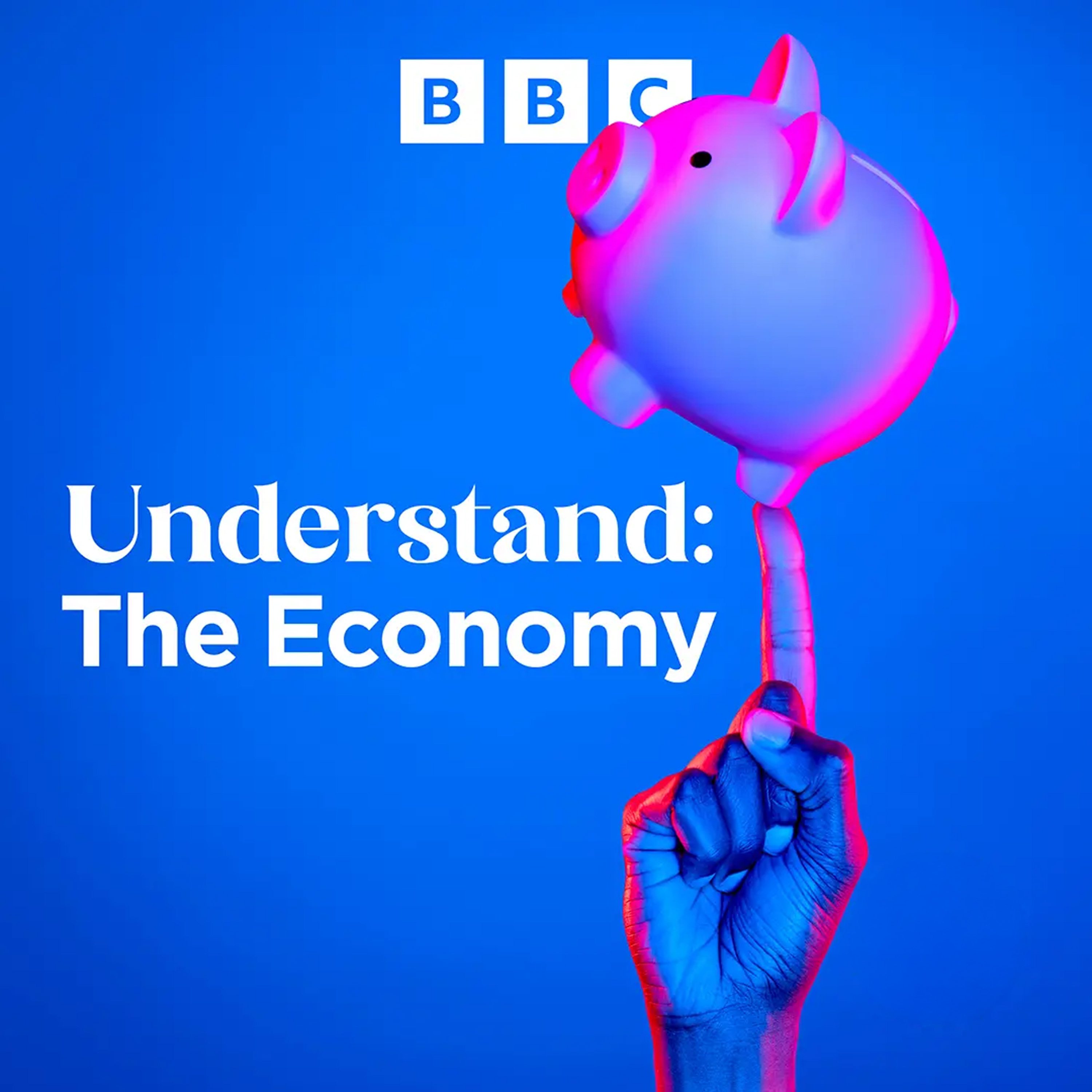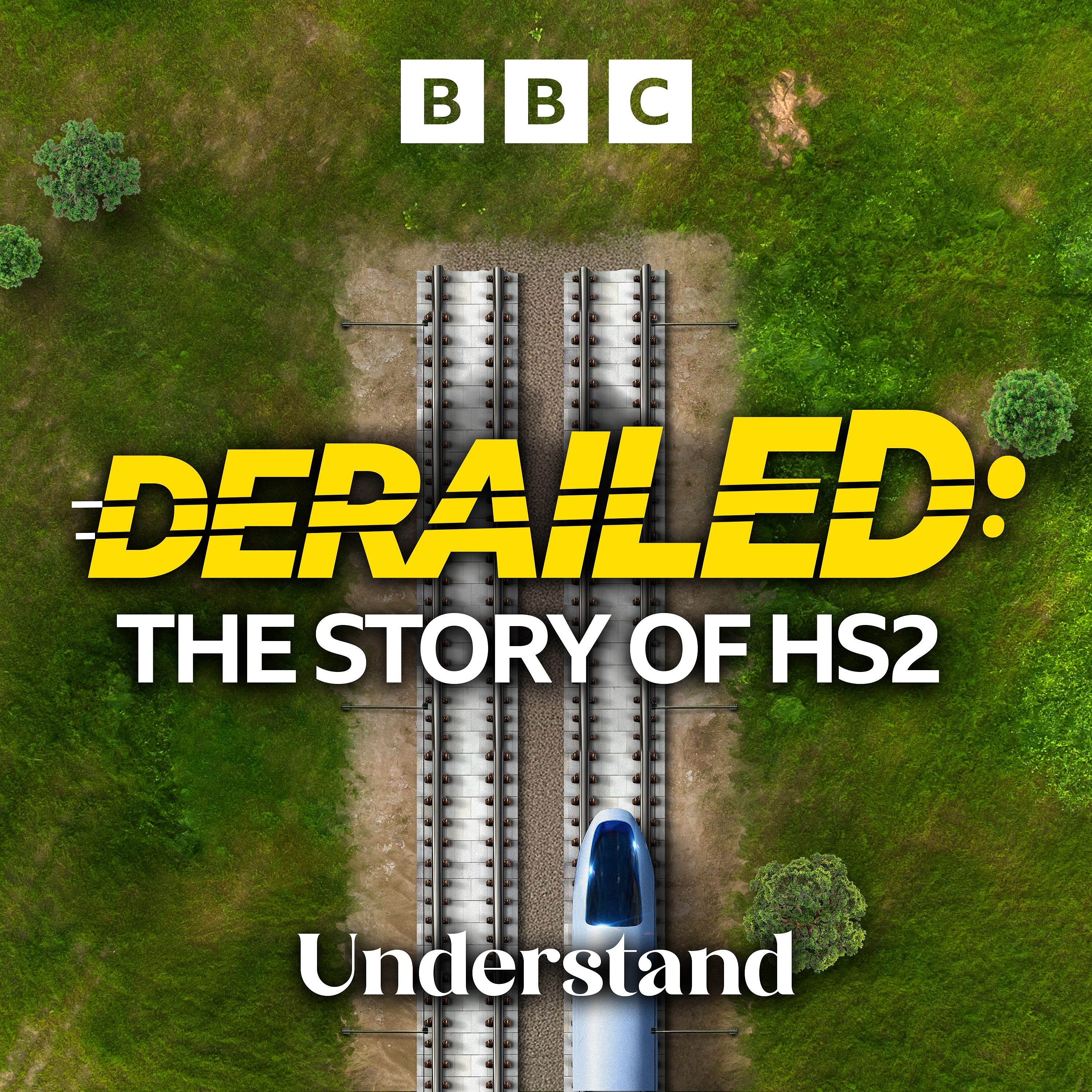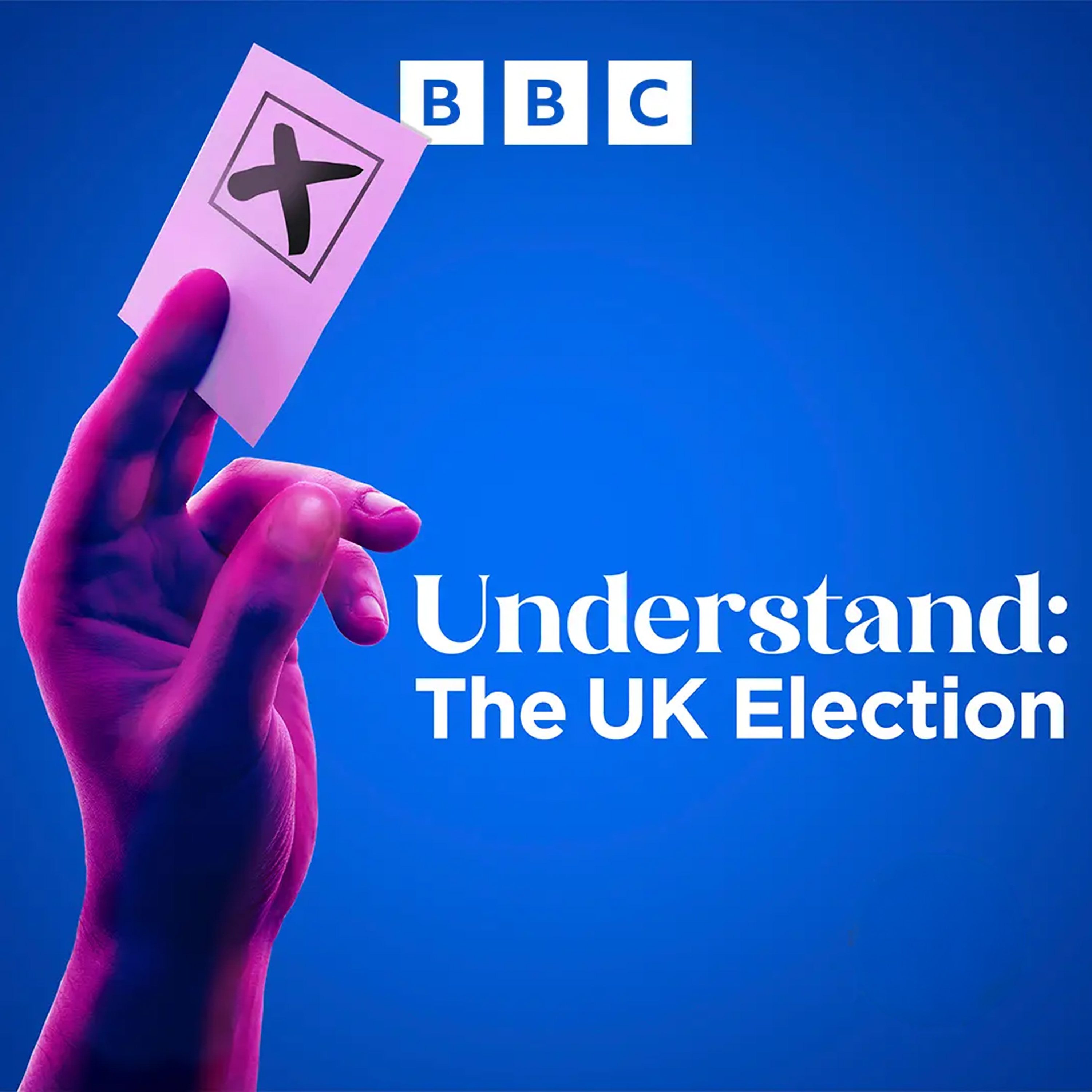The Economy: 5. Banks
What are banks and what do they do with our money? Tim Harford explains where your money goes when you put it in a bank account and reveals that your bank might actually be a shadow bank. Economic historian Victoria Bateman tells the story of Priscilla Wakefield, one of Britain's forgotten female economists, who created the first saving bank for working-class women in a Tottenham grammar school.
Everything you need to know about the economy and what it means for you. This podcast will cut through the jargon to bring you clarity and ensure you finally understand all those complicated terms and phrases you hear on the news. Inflation, GDP, Interest rates, and bonds, Tim Harford and friends explain them all. We’ll ensure you understand what’s going on today, why your shopping is getting more expensive or why your pay doesn’t cover your bills. We’ll also bring you surprising histories, from the war-hungry kings who have shaped how things are counted today to the greedy merchants flooding Spain with silver coins. So if your eyes usually glaze over when someone says ‘cutting taxes stimulates growth’, fear no more, we’ve got you covered.
Guest: Professor Wendy Carlin, University College London and Director of CORE Econ (Curriculum Open-access Resources in Economics)
Producer: Phoebe Keane
Researchers: Drew Hyndman and Marianna Brain
Editor: Clare Fordham
Theme music: Don’t Fret, Beats Fresh Music
A BBC Long Form Audio Production for BBC Radio 4
Press play and read along
Transcript
This BBC podcast is supported by ads outside the UK.
Because right now, Mint Mobile is offering you the gift of 50% off unlimited. To be clear, that's half price, not half the service.
And Mint is still premium unlimited wireless for a great price.
So that means a half day. Yeah? Give it a try at mintmobile.com/slash save.
Upfront payment of $45 for free month plan equivalent to $15 per month required.
New customer offer for first three months only. Speed slow out under 35 gigabytes of networks busy.
Taxes and fees extra. See Mintmobile.com.
Time is precious, and so are our pets. So time with our pets is extra precious.
That's why we started Dutch.
Dutch provides 24-7 access to licensed vets with unlimited virtual visits and follow-ups for up to five pets. You can message a vet at any time and schedule a video visit the same day.
Our vets can even prescribe medication for many ailments and shipping is always free. With Dutch, you'll get more time with your pets and year-round peace of mind when it comes to their vet care.
Go to Dutch.com to get vet care that is always there for just $92 a year.
BBC Sounds, Music, Radio, Podcasts. Welcome to Understand the Economy, the podcast that takes you back to basics and explains the way economics affects our everyday lives.
We've already explained inflation, interest rates, growth and bonds in our previous episodes, which are available now on BBC Sounds. In this episode, we're looking at banks.
Not those buccaneering investment banks like JP Morgan Chase or Goldman Sachs. No, quiet, solid, trustworthy retail banks like Northern Rock.
The very name Northern Rock was designed to create a sense of foundational stability, and retail banks do that with their long-standing brands and big posh buildings with all the pillars outside.
But of course, Northern Rock's pillars fell down. It had to be bailed out, and we'll talk about why later.
So what are banks really? And what do they do?
Are they just great big storehouses of cash that you can swim around in like Scrooge McDuck? It can't be that. It's all spreadsheets these days anyway.
So are they...
great big storehouses of spreadsheets.
I'm joined by Wendy Carlin, Professor of Economics at University College London and the leader of the Core Econ project, which is reforming the undergraduate economics curriculum.
Wendy, when I strip away all the fancy stuff like galloping black horses and touchless debit cards, the fundamental thing that banks do is take deposits and give out loans, right? That's right.
They're profit-making companies, and that's exactly what they do. They borrow cheap.
and they make loans for which they charge a higher interest rate and the difference between the two is what generates their profits.
So let's say that Phoebe, the producer of this program, gives me my presenter's fee and let's say it's 50 quid in cash in a plain brown envelope which of course is absurd because Radio 4 would never give me 50 pounds for anything.
Let's say I get 50 pounds cash and I toddle over to my bank, old school, and I deposit the money.
So what then? Did I just lend 50 pounds to the bank? You did, Tim. You lent 50 pounds to the bank and that will join all the other
small savings that have been deposited in the bank. You probably won't get any interest on your deposit, and the bank will be
looking out there, making its decisions about who it should be making loans to.
And it will then fund those loans, and part of the funding will come from the deposits that it's accumulated in the bank. Right.
So it's not that they've got...
lots and lots of safety deposit boxes full of you know my 50 pounds and someone else's 50 pounds and mine's you you know it's got my name on
that that money just goes into a big pool and and then you know might be lent to you because of a mortgage for example absolutely
talk me through the idea which which people who study banks keep telling me this and it keeps blowing my mind that that banks create money because it seems very straightforward what we've described you know the banks are lending money for mortgages and they get that money from the depositors and and there you go they just sit in the middle but bank experts say no no there's something else going on yeah so when they make the loan they are creating money because that turns up in the borrower's bank account so that's the sense in which they're creating money right so
you decide you want to borrow money from a bank to
you're going to buy a new motorbike Your old motorbike is getting a bit rusty. You want a brand new motorbike, so it's going to cost you £8,000.
You go to the bank, you say,
lend me £8,000
because I want to buy a motorbike. And the bank just says, sure, here you are.
And in your current account is an extra £8,000,
which you then take out, you spend on the motorbike, but then that money is in the motorbike manufacturer's account, and they then spend it on salaries or whatever. So money's up here.
So where did that money appear from? Because the bank is not like the Bank of England. It can't just magically decide to create money, but it's put £8,000 in your bank account.
Yes, so this is what's called bank money. So the banks create it.
But the idea that that's the same as sort of creating profits or money that they can spend is absolutely the wrong way to think about it.
It's much better to think about it as just the outcome of their decision to make a loan.
So you can think of it as a rather technical thing, that when they make a loan, what does that mean? It means that money appears in the bank account of the borrower.
Wendy, if I may, I want to ask you what happens when banks go on strike.
And there is a particular historical incident that's quite famous among banking nerds, which is the Irish banking strike of the 1970s. What happened and what does it teach us?
What happened is that the Irish banks were afflicted by an industrial relations dispute and it lasted for six months. So all of the Irish banks had their doors closed for six months.
Which is a long time and given what we know about banking, that should lay waste to the Irish economy. But it didn't.
So how did they cope? Well, the answer to that comes in a three-letter word, and the three-letter word is pub. So what happened...
One of my favourite words.
Well, that's what I thought you'd like the story.
So what happened is that essentially the publicans, so it's important to remember at the time that there was something like
one pub for every 180 people in Ireland. So there are a lot of pubs.
A lot of pubs. And they knew their communities very well.
So they knew, more or less, whether you, when you wrote a check, whether there was money in your bank account.
And so the publicans, they couldn't actually check whether you had the money in the bank account, but they could make a reasonable guess about whether there was money, funds in your bank account, and therefore whether that transaction would be honoured.
Right.
the publican knows me, I drink at his pub, knows where I live, knows a lot about me, and so has a good idea whether I am, in fact, good for the hundred pounds. That's right.
So I can understand how that solves the problem of paying for a pint of Guinness. I go in and I write a cheque for a pint of Guinness, but how does that keep the whole system working?
So those pieces of paper, the checks that the publican was accumulating, were then able to be used by people for other transactions.
So they could then get the publican to endorse the back of the cheque so they knew that you had the money in your bank account to pay for the pint.
the publican could put that cheque back into circulation and that could be used for someone else to purchase their groceries. So it kind of turns into a hundred pound note sort of.
It turns into a hundred pound note. So it was circulating as money, newly created money during the banking strike.
Is it money or is it not money? It is money.
A piece of paper that allows you to exchange the piece of paper for a bag of groceries.
So when you say it's money, what you mean is it's a piece of paper that can pass around but everybody agrees has value. So if everyone agrees it's money, it's money.
That's right.
So it really points to the crucial role of trust in underlying the whole concept of money. Well, the Latin for trust is credo, hence credit, credit cards, all of this.
Well, somewhere between Roman times and the Irish bank strike of 1970, a very remarkable and now almost forgotten economist set up one of the UK's first savings banks.
Let's hear from economic historian Victoria Bateman with that story.
So in 1798, a woman by the name of Priscilla Wakefield noticed that there was a problem. Normal people from domestic servants to factory women had nowhere safe to put their spare money.
They were literally having to put it in a pot under their bed.
And so Priscilla Wakefield, noticing this need for safety for people's money, offered a service in the sense that people could put their money in safety in her savings bank and in return would receive a reward, a reward in the form of interest, a 5%
interest rate on any money that they deposited in her bank.
So Wakefield actually didn't have a physical bank building.
She instead used a local school and so would set up a bench once a month where people would come if they wanted to put their savings with her or if they wanted to retrieve the savings.
And of course, interestingly, the word bank comes from the Italian word bench. And so, many of the earliest banks in history were literally benches that were set up in local squares.
And so, your money lender or your banker would sit behind a bench in the public square and people knew that that was the place to go if they wanted to do any financial dealings but of course in britain because the weather is so poor they look for buildings that are familiar and so schools were the type of places where these early banks could do their dealings
so Wakefield would in turn take people's savings and of course she wants to put them in a safe place and so people's savings were essentially put into these government bonds.
If people want to take back their money from the savings bank then that's okay because all the time you have some people coming into the bank in order to deposit their money and that enables the bank to match that with people who are coming into the bank in order to retrieve their money.
So inspired by Wakefield's bank, other savings banks started to spring up across the country and some of these were trustworthy but others were quite frankly scammers.
They wanted to take people's savings and effectively to run off with them. And so Parliament felt that it needed to act.
It needed to act in the interests of people's savings.
And so in 1817 it introduced the Savings Bank Act which forced all savings banks to make sure that when they took people's money they placed that money in something secure and solid.
And that something was a government bond. Over the years, more and more acts and regulations followed in the hope of keeping people's money safe.
And eventually, we arrive at today's modern day big banks.
Dr. Victoria Bateman.
Wendy Carlin, why is it that governments seem quite happy to let an energy company go bankrupt, or even a supermarket could go bankrupt, but they won't let a bank go bankrupt.
The bailouts always seem to come.
So why is that? Is it just a case that the banks have better lobbyists, or is there something else?
There is something else, because the banks operate the payment system in the economy that allows us to seamlessly transact with all of our purchases as households and firms throughout the economy.
So there's a crucial piece of infrastructure that's provided by the banking system.
But even more importantly is the interconnectedness of banks. So that if one energy company fails or if one automobile company fails, that doesn't have repercussions throughout the economy.
That's not the case with the banking system. So if one bank fails, that creates problems for other banks.
But why do I care about problems for the banks? I mean,
they've got money. Who cares if they all go bankrupt? It affects you because you need the banks in order to engage in your everyday life.
So you need to
make payments on your mortgage. You need to pay for your groceries.
You have a whole series of interactions every day that require a functioning banking system.
So now you can just think of how many times you flash your phone to conduct a financial transaction, to buy something, to buy a service, a ticket to the cinema.
All of these things rely on a functioning banking system. Right, so no movies, no food.
Correct. Okay, you convinced me.
It would be bad.
And the experience with the crisis in 2008-2009, where a crucial bank was allowed to go bankrupt, Lehman Brothers, it was not bailed out.
And we lived to experience the consequences from the interconnectedness of banks, not just within a country, but all around the world. And pubs did not, in fact, step in.
They did not.
So, banks can't live with them, can't live without them. We lend them money, they lend us money, they even create money.
They're fundamental to the way any economy works, and they're often at the heart of economic trouble, too.
Please remember to subscribe to our podcast, Understand the Economy, available now on BBC Sounds.
Understand the Economy was presented by me, Tim Harford, and produced by Phoebe Keene. The researchers were Drew Hindman and Mariana Brain.
The editor was Claire Fordham, and it was mixed by Gareth Jones and Nigel Appleton.
Hello, this is Marianne Keys, and this is Tara Flynn. And we're here to remind you that our podcast, Now You're Asking, is back for a new series.
Each week, we take real listeners' questions about life, love, lingerie, cats, dogs, dentists, anything really, and apply our worldly wisdom in a way which we hope will help, but also hopefully entertain.
Join us why don't you? Search up Now you're asking on BBC Radio 4 now available on BBC Sounds.
At the BBC we go further so you see clearer.
With a subscription to BBC.com you get unlimited articles and videos, ad-free podcasts, the BBC News Channel streaming live 24-7 plus hundreds of acclaimed documentaries.
From less than a dollar a week for your first year, read, watch and listen to trusted independent journalism and storytelling. It all starts with a subscription to bbc.com.
Find out more at bbc.com/slash unlimited.


